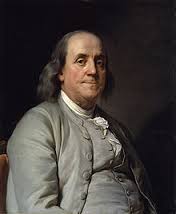Procrustes Stretched
Dante's Manifesto
- Thread starter
- #41
Good gawd...https://www.masshist.org/revolution/teaparty.phpOK, now how do you have a single action both "sedition", which is inciting rebellion against the government, and destroying private property? You are aware that the two are pretty much mutually exclusive, right?
That action BTW was not against the government, but against the British East India Company, which had been given a tax free charter to be the only company to provide tea to the colonies. And the only taxes they were to pay were those collected against the Colonists by the Townshend Act. Which lifted all of the unconstitutional taxes against the colonies except for that on tea.
But not a single individual was harmed. And the value has long been debated, as that is the "insurance value". In reality, a lot of it had already spoiled and was undrinkable before it even arrived in Boston. A third of the cargo was green tea. Which not only was not popular in the colonies, it had a short shelf life and had most likely already spoiled in transit. The bulk of the black tea was also rather old, and unsellable in England.
In essence, it would be the equivalent of back in 1981 the US Government in order to try and bail out Chrysler decided to give them an exclusive contract to be the only car company allowed to sell vehicles in the United States. And that they could still collect the taxes charged for new car sales, but keep the money themselves. Oh, and the only car available in the US would be the 1981 Plymouth Reliant. And no other cars would be sold until those were all gone.


From the article, posted in the OP, Post #1: Two separate items listed, which are mutually exclusive?

to commit seditious conspiracy and destroy private property
From the article, posted in the OP, Post #1: Actions not against the government?

all because they didn’t want to obey a duly passed law
Facts: not like your distorted opinions "the tea would be taxed at the point of entry in colonial ports." The East India Company was not taxing anyone. The British Parliament was.
"Boston's consignees petition the governor to safeguard the tea once it arrives, but with British forces confined to Castle William since the unfortunate events of the Boston Massacre, Hutchinson is powerless to oblige. The streets belong to the opposition." (sounds like ANTIFA to me).
Governor Hutchinson is incensed, calling the dumping of the tea high treason




